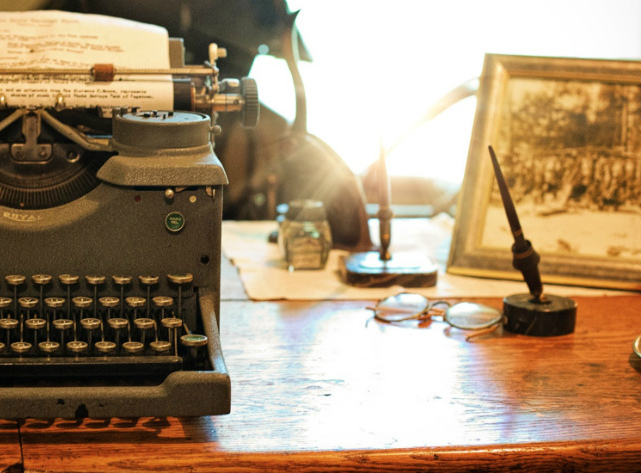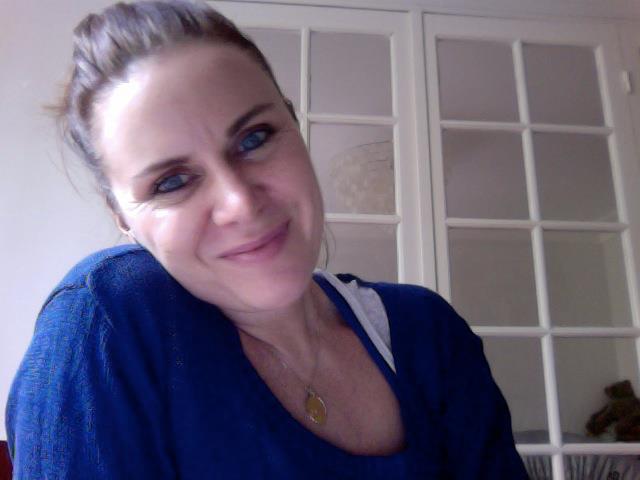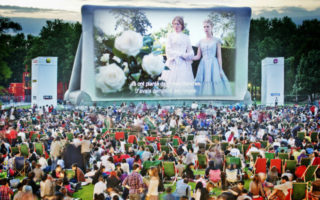Paris Writers Workshop: Author Nicola Keegan on Writing and Teaching
- SUBSCRIBE
- ALREADY SUBSCRIBED?
BECOME A BONJOUR PARIS MEMBER
Gain full access to our collection of over 5,000 articles and bring the City of Light into your life. Just 60 USD per year.
Find out why you should become a member here.
Sign in
Fill in your credentials below.
Paris-based novelist Nicola Keegan has her hands full at the moment. She’s completed a humongous book that will be released in two volumes, is preparing revisions with the help of her NY agent, all while getting ready to teach a Master Class in novel-writing at the Paris Writers Workshop Writing Weekend. She recently took a break for a trip to Scotland, which she described as “intense”. I asked her to elaborate.
“The weather and the cliffs and the water and the history and the preponderance of grey brick and the terrain that must have been the same during the most violent of years. I love the idea that there is a queen’s residence there. Crowns. Royal Botanical gardens. Moats. The world is such a mysterious place.”
Wanderlust is part of Nicola Keegan’s personal and family history. Her family immigrated from Ireland to the US in the 1970s. She later moved back to Europe, settling in France. The theme of movement, personal and geographical, figures in both of her novels, her debut Swimming (Alfred Knopf), which was acclaimed on both sides of the Atlantic, and the current work, which is even more ambitious.
One might think that with such an atmosphere, Nicola would have found inspiration to do some writing in Scotland, but she said the sojourn was strictly for family recreation. For actual writing she depends on what she called the worst place on the planet: a Starbucks attached to a Monoprix supermarket.
“I sit above the pineapples to the left of the escalators and the make-up counter and I write there, usually the last table near the window. Kids ride their bikes by and there are security guards in brown uniforms and lots and lots of shoppers who are usually in lousy moods.”
To compensate she also goes to the American Library in Paris, which she finds calming, with a staff she’s friendly with, to the extent of giving her a thumb’s up when they pass her desk. She’s needed the encouragement with her latest novel.
“I would describe my current novel as a living nightmare. It’s the most annoying thing I have ever tried to do—it makes my toes curl. I was trying to do this impossible thing from the beginning and the worst part is: I knew it. I don’t know why I do this to myself, but something inside won’t let me stop. I have about 650 pages now.”
The novel’s genre? She describes it as an epic family alcoholic immigration saga with God and Jesus and reincarnation and some near-death experiences and world history stuffed into it along the way.
“The good thing is—it was so hard to write and I fell down so many times, I have no ego left, which is incredibly liberating.”
She’s giving the corrections to the agent on August 24th, but it may still need more work. She said she isn’t thinking of the publication process. This shouldn’t be surprising given her experience with the process that culminated in her acclaimed best-seller Swimming.
“The first thing everyone, from best friends to poets to people in bars to anonymous people on trains, told me when I was writing Swimming was that the chances of it being published were slim to invisible. This was a good thing, actually—I just wrote uphill with the best energy I had in my system. I hate thinking that life is all played out and that there is nothing you can do about it. It’s good old Irish fighting energy. Not to say that I didn’t have moments of pure doubt just as potent as any personal convictions I had, but I did not harbor the thought of no in my heart.”
Sheer perseverance is one of the things she tries to inculcate in her writing students.
“Perseverance is one of the keys. And not taking “failures” too personally. It’s difficult to explain, but deep inside your mind you have to decide that no matter what happens or how bad your writing is or how many times you’ve failed, you won’t stop.”
Swimming was hailed by many critics, and made it to Time Magazine’s Top 10 novels of its year. One might have thought that with a novel under her belt things would have gotten easier. But she’s had to keep cultivating this determination and resilience with her latest project.
“This second novel was a chore, just writing single sentences. I’d open my computer and then try to think of any way I could weasel my way out of it. This book is very different to Swimming. It’s more spiritual, very personal, I can’t get away with any of my old tricks. It’s truth or die. ”
I asked her what impact the success of Swimming did have, bad or good.
“The idea of success makes me laugh—you go back to a new day one where you start over again as if the other thing didn’t happen. One of the most beautiful experiences in the publication process was meeting the people, first and foremost, my agent, then the translators and the editors and the book designers, and finally, the readers. It was very touching and fortifying. I probably lost track of all that happiness with the second novel, but I probably wouldn’t have tried to do something so hard if Swimming didn’t exist in the first place.”

courtesy of WICE
Nicola said she typically combines what might appear deliberate with an intuitive and spontaneous approach. She described her writing method as opening up her master document and just writing whatever page she falls on.
“I get ideas and open my document and stuff the idea in there as though that’s where it should be. I research the most ridiculous things that serve zero purpose and think about them on paper. I read the Big Book from Alcoholics Anonymous, twice. I make timelines and then don’t follow them.”
Her approach to teaching emphasizes the personal. She said that she tries to meet her students “where they are” in their work. I asked if it is really possible to teach writing that is genuinely creative. .
“Teach may not be the word but the answer is: Yes. Yes, you can help someone, of course you can. People need people. The worst thing is being alone all the time. It turns you into a crazy person. Writers need to get those ideas out of their heads and into fresh air, they need to speak and they need someone to listen and they need to listen in return. They need their ideas no matter how farfetched to be considered and taken seriously. You encourage them. You give their work a sincere reading and you tell them what you think is happening or not happening on the page. Writing is hard. I bow down in respect to he or she who attempts it no matter where they are on their path. So yes! I think you can raise a writer’s consciousness, of who they are, of what they are doing. It’s not a walk in the park though. You have to be open.”
As with just about every writer, her own learning process began with extensive reading.
“We immigrated to America and I had zero friends and a lot of freckles so I read books. A lot of them. Secondly, I was born into a gigantic tragic Irish clan. There was a lot of strong personality and a lot of weak personality. To survive, I had to learn to observe and to juggle my brothers and sisters on one foot whilst balancing my mother’s character on the other, while learning to do math and trying to grow up and learn and make sense of the world, while also going to church on Sunday. There was a choice. Writer or crazy person.”
That may or may not be an exaggeration. Years later came a more formal learning experience with Alice Notley at the British Council in Paris. Notley is a Pulitzer Prize-winning American poet, and was the teacher and mentor of a number of first-rate writers.
“She blew up my mind in a really good way—the first day. She started crying while reading a poem. I had a very strong reaction. I about had a heart attack. I’d been around liars and assimilators and confabulators and jokesters and posers and goofballs for so long that this real human emotion pouring out of her was an energy that charged the room—I did not know what to do with myself, it made me so squirmy and uncomfortable. But I recognized it for what it was: Real. I decided to be real and try to capture real. I didn’t kneel down, but I took a vow in my head, real or nothing. I’ll never forget it.”
Her immediate writing plans are to finish the second 300 pages of her novel while absorbing her agent’s notes on the first 300. Hopefully everything will be done by the end of summer. With all of that, how does she plan to deal with the challenge of a Master Class?
“With a hell of a lot of energy.”
For those thinking of signing up for Nicola’s class, you’ve been forewarned. The PWW Writing Weekend takes place in Paris from June 28-30. For further information contact the WICE via their web site (www.wice-paris.org) or by phone (+33 (0)1 45 66 75 50). (Full disclosure: I’m an unpaid organizer of the workshop.)
Lead photo credit : Nicola Keegan
More in author interviews, writer's workshop, writing in Paris





